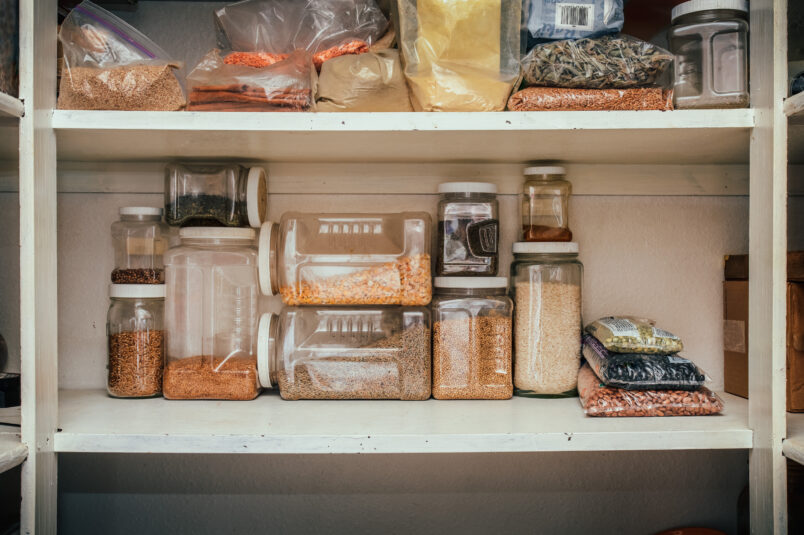
This article is part of TPM Cafe, TPM’s home for opinion and news analysis.
They say beggars can’t be choosers, but in our nation of plenty, we can and should do better than that.
Holiday scenes of soup kitchens and ham giveaways are our yearly reminder of the vast disparities in economic security among Americans, and our differing abilities to meet our health and nutrition needs. Too many families cannot confidently predict when, where, or how their next meal will come. According to the USDA, roughly 10% of U.S. households meet this criteria for “food insecurity.”
As we head towards New Years, some of us donate our time, money and extra canned goods so we can offer those in need a special meal for Christmas or Hanukkah — a turkey or a brisket, finished off with some cookies or a big slice of pie. But come January, Americans’ collective kindness begins to wane, and the less fortunate are left to rely on the types of foods that nutrition assistance programs allow. This puts food insecure people at the mercy of policymakers determined to cut out all the salt, sugar and fat from the diets of those whose plates America sought to fill in November and December.
As we resurface from the pandemic, the country should recalculate the costs and benefits of dictating the diets of the poor. Our current nutritional assistance programs are too restrictive and convoluted. And what’s worse, they don’t improve the way people eat. The reason why is obvious to anyone who has taken the time to talk to people about how they manage their meals on a day-to-day basis.
For my research on food deserts and retail inequality, I interviewed one hundred people about their food choices and the state of available options in their neighborhoods. After sitting at people’s kitchen tables, I came away with the firm belief that if more policymakers better understood how the food insecure manage their multiple needs, they would be more forgiving of food insecure people’s desire to have more control over their own diets.
During my interviews, the first thing I learned is that being poor takes forever. Whether it is waiting in lines or filling out forms, nothing comes quick: especially rides to the grocery store. These time burdens cut into food budgets by limiting what can be prepared at home.
The ideal diets envisioned by the USDA too often assume that everyone is able to cook from scratch. But for most families grappling with food insecurity, there just isn’t enough time or energy to wash, chop, cook and clean. And for single parent households, where kids eat one meal while the adult eats another, it gets even harder: they are living together but eating apart.
For those hovering just above the poverty line (what the US Census calls “the near poor”), being food insecure means dipping in and out of the retail food market. Those reliant on social assistance know what these programs will let them to eat. So, they set aside what’s left of their cash for things the guidelines do not allow.
The near poor know that they can’t use food stamps on hot foods like a cooked rotisserie chicken at the grocery store. Instead, they’ll do what the more affluent do: save time at home by buying it with cash. The only difference, of course, is that the near poor don’t have as much to spare.
Being poor does not turn people into robots — food insecure Americans live their lives on their own terms as best they can, and policymakers should let them. What they need is flexibility.
Poverty breeds unpredictability. Even the most carefully planned budgets can fall apart because of an unplanned emergency or unexpected bill.
Given these challenges, how much say should our food assistance programs let the poor have over their own diets? Current policies limit the kinds of foods that can be purchased with Supplemental Nutrition Assistance Program benefits (commonly referred to as food stamps or SNAP). The restrictions become even more stringent within the Women, Infants and Children (WIC) Nutrition Program. My interviews with food pantry directors and soup kitchen managers revealed that they also face pressures from policy advocates to restrict what they serve the hungry. And while forcing the poor to eat healthier may seem the obvious choice, the country needs to rethink that notion.
To reach the point of food insecurity is to experience deprivation on multiple fronts: economic, social and biological. Denying people in this condition the ability to exercise their own dietary preference is just another form of blaming the victim.
Remember, the wealthy have poor diets, too. Fast food consumption rises alongside household income in this country. Yet, those with more wealth have better health outcomes. Why? Because they can offset their less than stellar diets with adequate housing, education, recreation and health care.
If policymakers cannot find it in our hearts to give the poor the resources to meet all their basic needs, then they should at least give them enough money to buy enough food to feed their families. Whatever food they want.
This holiday season, during our annual six-week flirtation with generosity, Congress should work with the USDA Food Nutrition Service to extend and expand the waivers it granted at the onset of the COVID-19 pandemic. Now is the time to unwind the elaborate means testing formulas and misguided nutritional surveillance programs that ultimately demean those they’re meant to serve. On both moral and economic grounds, these regulations simply cost more than they are worth.
The poor have plenty of problems on their plate. Policymakers can at least give them greater flexibility to manage their food struggles from day to day. It’s the human thing to do.
Kenneth Kolb is Professor of Sociology at Furman University. His new book, Retail Inequality: Reframing the Food Desert Debate, was recently published by the University of California press.